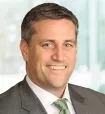- within Employment and HR topic(s)
- in United States
- with readers working within the Retail & Leisure industries
- within Consumer Protection topic(s)
Nevada has begun implementing the Nevada Employee Savings Trust (NEST) Program, which permits private-sector employees to make automatic payroll deductions into Roth individual retirement accounts (IRAs). Employers that don't offer retirement benefits must register with the NEST Program by September 1, 2025.
Quick Hits
- Nevada established the NEST Program to allow private-sector workers to make payroll deductions into Roth IRAs if their employer does not offer retirement benefits.
- Nevada joined nineteen other states that have established retirement savings programs for private-sector workers.
- Employers in Nevada must register with the NEST Program by September 1, 2025, or certify that they have an exemption because they already provide a qualified retirement plan.
Background on NEST
The NEST Program was established in 2023 with Senate Bill 305. It provides a savings mechanism for Nevada residents who do not have the opportunity to save post-tax dollars through an employer-sponsored retirement plan.
Employers that do not offer a tax-favored retirement plan are required to participate in the NEST Program or a similar program offered through a local chamber of commerce or trade association. The requirement applies to employers that have six or more employees and have been in business for at least thirty-six months.
Private employees are covered if they are at least eighteen years old and have been employed by the employer for 120 days or more. The NEST Program does not cover workers who are employed by government entities, make contributions to a Taft-Hartley multiemployer pension trust fund, or are covered under the federal Railway Labor Act.
Private employees will be automatically enrolled in the NEST Program, but they can opt out or withdraw funds at any time. Employees can choose their own contribution rate or use the default rate of 5 percent of earnings. Employers do not have to contribute money to the accounts.
The NEST Program requires employers to send payroll contributions and maintain accurate employee records, including updating contribution rate changes, adding new employees, and listing former employees as terminated from employment. Employers are not considered fiduciaries in relation to the accounts. Employers have immunity from civil liability for decisions made by employees or the board of trustees for NEST.
The board of trustees will release communication materials and required disclosures for employers to give to employees, such as:
- a description of the benefits and risks associated with making contributions through NEST;
- instructions about how to obtain additional information about NEST;
- a description of the federal and state income tax consequences of having a Roth IRA;
- a statement that employees seeking financial advice should contact their own financial advisers, and that covered employers are not liable for decisions covered employees make concerning NEST;
- a statement that NEST is not an employer-sponsored retirement plan;
- a statement that an employee's Roth IRA established or maintained through NEST is not guaranteed by the state;
- a description of the default contribution rate, any automatic escalation rate or frequency, and the employee's right to make no contribution or change the contribution rate; and
- a description of the default investment fund.
Next Steps
Employers in Nevada will need their employer identification number, payroll information, bank information, and employee information to register for NEST and set up an employer account before September 1, 2025.
Employers may wish to coordinate with their third-party payroll vendor to ensure the correct payroll deductions can be made. They also may wish to monitor the NEST website to stay abreast of required disclosures when they become available.
The content of this article is intended to provide a general guide to the subject matter. Specialist advice should be sought about your specific circumstances.




